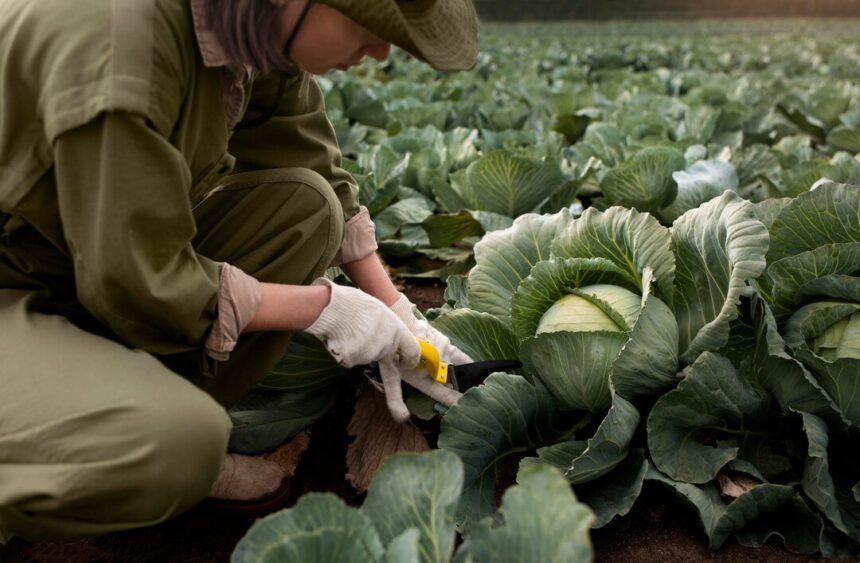Genetically Modified Organisms (GMOs) have been a subject of significant debate in agriculture, sparking discussions about their benefits, risks, and ethical considerations. GMOs are organisms whose genetic material has been altered using genetic engineering techniques to introduce desirable traits, such as resistance to pests, diseases, or herbicides. While proponents argue that GMOs offer solutions to agricultural challenges, critics express concerns about their potential environmental and health impacts. In this article, we’ll explore the multifaceted impact of GMOs on farming, examining both their benefits and drawbacks.
Increased Crop Yield and Productivity:
One of the primary advantages of GMOs in farming is their potential to increase crop yields and productivity. By introducing traits such as pest resistance, drought tolerance, or improved nutrient uptake, GMOs can help farmers produce more food on less land, thereby increasing agricultural efficiency and addressing food security challenges. For example, genetically modified crops such as Bt cotton and Bt maize have been shown to reduce yield losses caused by insect pests, leading to higher yields and reduced pesticide use in some regions.
Enhanced Pest and Disease Resistance:
GMOs can confer resistance to pests and diseases, reducing the need for chemical pesticides and minimizing crop losses. For example, Bt crops produce proteins derived from the bacterium Bacillus thuringiensis, which are toxic to certain insect pests, thus providing built-in pest protection. Similarly, genetically modified crops engineered for disease resistance can help farmers mitigate the impact of fungal, viral, or bacterial pathogens, leading to more resilient and sustainable farming systems.
Improved Herbicide Tolerance:
Herbicide-tolerant GMOs are engineered to withstand the application of specific herbicides, allowing farmers to control weeds more effectively and reduce labor and input costs. Glyphosate-resistant crops, such as Roundup Ready soybeans and maize, have become widely adopted in some regions, enabling farmers to use glyphosate-based herbicides to manage weeds without harming the crop. However, concerns have been raised about the potential environmental impact of increased herbicide use and the development of herbicide-resistant weeds.
Environmental Considerations:
While GMOs offer potential benefits in terms of increased productivity and reduced pesticide use, they also raise environmental concerns related to biodiversity, soil health, and ecosystem resilience. The widespread adoption of GMOs has led to the emergence of herbicide-resistant weeds and insect pests, which can pose challenges for farmers and necessitate the use of alternative control measures. Additionally, there are concerns about the potential impact of GMOs on non-target organisms, such as beneficial insects and soil microbes, as well as the long-term effects on ecosystem dynamics and biodiversity.
Health and Safety Considerations:
The safety of GMOs for human consumption and the environment is a topic of ongoing debate and research. While regulatory agencies such as the US Food and Drug Administration (FDA) and the European Food Safety Authority (EFSA) have concluded that GMOs currently on the market are safe for consumption, some studies have raised questions about potential risks, such as allergenicity, toxicity, and unintended effects on gene expression. Critics also raise concerns about the potential for genetic contamination of non-GMO crops and the loss of biodiversity associated with monoculture farming systems dominated by GMOs.
The impact of GMOs on farming is complex and multifaceted, encompassing both potential benefits and risks. While GMOs have the potential to increase crop yields, reduce pesticide use, and address food security challenges, they also raise concerns about environmental sustainability, biodiversity loss, and human health and safety. As the debate over GMOs continues, it is essential to consider the full range of social, economic, and ethical implications and to adopt science-based approaches to ensure responsible innovation and informed decision-making in agriculture.








